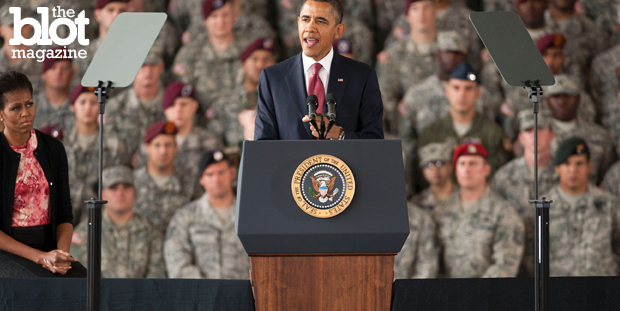The fight over Iraq may never truly end.
To fulfill a campaign pledge, President Barack Obama withdrew American troops from the country in 2011, nearly 10 years after the U.S. marched to war at the assumption Saddam Hussein possessed weapons of mass destruction and that Iraq had a role in 9/11. But even though America’s active role in the battle for the country may be over, the war over who lost Iraq to Islamic State of Iraq and Syria (ISIS) terrorists wages on.
Partisanship and finger pointing abound in politics. Who is responsible for creating ripe conditions that ISIS capitalized upon to take large parts of Iraq depends of the person who is asked. While Republican South Carolina Sen. Lindsey Graham has placed the blame squarely on the current president’s shoulders, Democratic leaders like House Minority Leader Nancy Pelosi have said that the failure in Iraq stems from policies begun before Obama even ran for the Oval Office.
Regardless of right or left, in his haste to deliver on his 2008 campaign pledge, Obama made the mistake of painting himself into a corner and leaving Iraq before the job was complete. The rationale of taking troops out of harm’s way did make some sense: Why keep American military personnel in a war zone any longer than absolutely necessary?
But like George H.W. Bush’s “no new taxes” pledge during the 1988 Republican National Convention, Obama should have reconsidered the decision. No matter how unpopular it might have made him with the left-wing of the Democratic party and progressive voters who opposed the war from the outset, in hindsight, it seems rushed.
The Iraq War was the wrong fight at the wrong time. Many thought that more resources should have been put into Afghanistan — where al-Qaida mastermind Osama bin Laden had been hiding and the Taliban had imposed its perverse Sharia law — but instead the president focused on Iraq and, in error, withdrew without a contingency plan.
Former Florida Gov. Jeb Bush, like Graham, has tried to earn political points by blasting the president on Iraq and is a 2016 candidate to succeed Obama as well. But unlike the former governor, Graham must be running in hopes of raising his profile in Washington, D.C. While Bush — who delivered a speech on Iraq and ISIS this week at the Ronald Reagan Presidential Library in Simi Valley, Calif. — actually has a good chance of winning the Republican nomination, Graham does not.
In excerpts released by the Bush team ahead of the speech, Bush faulted the Obama administration for bumbling Iraq and leaving behind a power void that was filled by ISIS.
“Why was the success of the surge followed by a withdrawal from Iraq, leaving not even the residual force that commanders and the joint chiefs knew was necessary,?” Bush rhetorically asked. “That premature withdrawal was the fatal error, creating the void that ISIS moved in to fill – and that Iran has exploited to the full as well. ISIS grew while the United States disengaged from the Middle East and ignored the threat.”
These are the most forcefully critical comments that Bush has made on the campaign trail thus far. And even though I won’t support his run for the White House and don’t believe Obama’s policies are responsible for the rise of ISIS, the U.S. should not have disengaged from Iraq as quickly as it did.
And for sticking to his word — to the deficit of Iraq — the president must take some blame.
Noah Zuss is a reporter for TheBlot Magazine.






